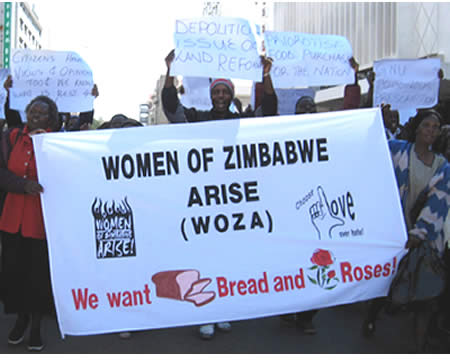Talks on the table
Monday, August 25th, 2008 by Amanda AtwoodIf all goes according to plan, the Members of Parliament who were elected in March will be sworn in today, and Parliament will open tomorrow. At five months after the fact, it’s tempting to think “finally,” with a sigh of relief that Zimbabwe’s legislature is kicking into gear at last.
But there’s the small problem of the 21 July Memorandum of Understanding, and this clause in particular:
The Parties shall not, during the subsistence of the Dialogue, take any decisions or measures that have a bearing on the agenda of the Dialogue, save by consensus. Such decisions or measures include, but are not limited to the convening of Parliament or the formation of a new government.
When we asked subscribers what they thought of Parliament opening this week, despite this provision in the MoU, many urged the MDC to boycott Parliament, abandon the talks, and go the route of civil disobedience. Others, however, were sceptical of this as a viable approach, and urged the MDC to go along with the opening of Parliament and let pressure mount on Mugabe from outside the country.
I’ve pasted below what Tsvangirai is being asked to concede to. As Prime Minister, Tsvangirai would be responsible for implementing the policies of a Cabinet he had not himself solely appointed. He and Mugabe would have to agree on the composition of Cabinet – and if they disagreed? It’s unclear how that deadlock would be broken. Tsvangirai would be able to recommend disciplinary measures – but not necessarily enact them. He could advise the President on appointments, but it would be Mugabe who made the final decision.
Would you sign?
Role of the Prime Minister
- Cabinet is the organ of state that carries the principal responsibility of formulating and implementing the government policies agreed to in the Global Agreement. The Executive Authority of the Inclusive Government resides in the President, the Prime Minister and the Cabinet.
- The Prime Minister is a member of Cabinet and its Deputy Chairperson. In that regard he carries the responsibility to oversee the formulation of policies by the Cabinet.
- The Prime Minister must ensure that all the policies so formulated are implemented in accordance with the programme developed by the Ministries and agreed to in Cabinet.
- In overseeing the implementation of the agreed policies, the Prime Minister must ensure that the state has sufficient resources and appropriate operational capacity to carry out its functions effectively. Accordingly, the Prime Minister will necessarily have to ensure that all state organs are geared towards the implementation of the policies of the inclusive government.
- The President and the Prime Minister will agree on the allocation of Ministries between them for the purpose of day-to-day supervision.
- The Prime Minister must ensure that the legislation necessary to enable government to carry out its functions is in place. In this regard, he carries the responsibility of conducting the business of Government in Parliament.
- The Prime Minister also advises the President on key appointments the President is required to make under and in terms of the Constitution or any Act of Parliament.
- The Prime Minister can make recommendations on such disciplinary measures as may be necessary
- The Prime Minister shall serve as a member of the National Security Council and this will ensure his participation in deliberations on matters of national security and operations pertaining thereto.
- As the work of the Inclusive Government evolves, the President or Cabinet may assign such additional functions as are necessary further to enhance the work of the inclusive government.
- The Prime Minister shall report regularly to the President.










